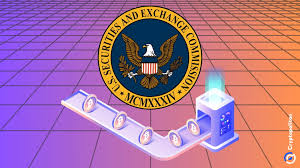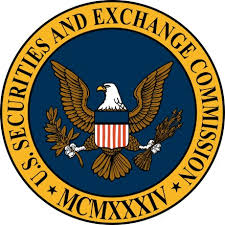SEC Settles FCPA Case with Moog, Inc. for Nearly $1.7 Million

The SEC notched another FCPA settlement, continuing its steady pursuit and resolution of FCPA cases. In the meantime, the Justice Department has been silent in the FCPA enforcement arena.
From 2020 to 2022, Moog employees bribed a variety of Indian officials to win business and also used a variety of schemes to make the improper payments, including by funneling them through third-party agents and distributors. These same Moog employees also offered cash bribes to Indian officials in an attempt to cause public tenders in India to favor Moog’s products and exclude competitors.
Moog’s bribery activity involved three state-owned companies in India: (1) Hindustan Aeronautics Limited (“HAL”) is an Indian public sector aerospace and defense company headquartered in Bangalore, India; (2) South Central Railway (“SCR”) is one of the Indian railway zones, wholly owned by the Indian government. India’s Railway Board oversees and manages the Indian railroad network, including SCR, and approves policies and projects related to the Indian railways; and (3) Research Design and Standards Organization (“RDSO”) is the research and development organization under the Ministry of Railways of the Indian government.
SCR Contract

Beginning in 2020, Moog-India sought an award contract with SCR. To be eligible to bid on an SCR project, approval is required by RDSO, SCR’s railway advisor. Historically, Moog-India found it difficult to get on the approved supplier list with RDSO.
To get on the RDSO approved-supplier list, Moog-India employees enlisted the assistance of a third-party Agent A to make bribe payments to SCR officials. In July 2020, Moog-India entered into a liaison agreement with Agent A, in which Agent A agreed to assist Moog-India in obtaining business from SCR in exchange for 10% of any contract value.
Shortly after engaging Agent A, in August 2020, the SCR added Moog as an approved supplier for an upcoming SCR tender notice. The tender notice listed Moog, along with one additional supplier, as potential suppliers for a specific part in the SCR tender. Moog-India employees discussed engaging in additional misconduct to remove the competitor from the supplier list, stating “my next target would be to remove them from railways.”
In September 2020, Moog-India won the SCR contract for $34,323. In April 2022, Agent A invoiced Moog-India for “commission charges,” which several Moog-India employees knew included the improper payments to government officials to eliminate competition and win contract awards. The payments were falsely recorded as legitimate contractor services.
Hindustan Aeronautics Limited Contract (“HAL”)
In April 2021, HAL announced a public tender for aerospace actuators for a contract valued for over $1.3 million.By May 2021, Moog-India employees were discussing negotiations around the amount and timing of a bribe payment to a HAL official, with one Moog-India employee explaining that the HAL official is “…asking for 2.5 percent to be given …or one percent to be givenimmediately…” The employees further discussed that the bribe payment would require a“maximum of 1.5 percent [payment] and then two .75 percent [payments] …they will promise that all the three people will be eliminated …” The employees also noted they would “have to give by cash.”

Internal discussions continued about the importance of winning the HAL tender and having the HAL official help disqualify the other bidders. “By any means, we must take the order of HAL,” and in response, “We need to eliminate everybody other than [a Moog competitor]. For that, we need to make some commitment to [HAL official].”
In November 2021, HAL awarded Moog-India a contract valued at $1,399,328 for parts and services related to the April 2021 contract tender.Various cash generation schemes through inflated and false invoices and connections to other entities were discussed to fund the bribe payment to the HAL official and ultimately the Moog-India finance manager was directed to “Please inform [Distributor B] to raise an invoice on MOOG …. Sale value can be INR 10 lakhs.” Ten lakhs was the amount of the bribe payment agreed upon between Moog-India employees and the HAL official.
Distributor B prepared a fabricated invoice for Moog-India in the amount of INR 1,540,000. The purpose of the invoice was ostensibly for the construction of a specialized table, yet Moog-India never requisitioned the table, and Distributor B never delivered a newly constructed table and was not in fact capable of constructing the table. The sham transaction was used to generate sufficient cash to pay the promised bribe to the HAL government official.
In January 2022, an instant message from a Moog-India employee instructedMoog-India’s finance manager to “please close [Distributor B] offer … as he came upfront to help us when we needed it.” In March 2022, Moog-India paid Distributor B approximately $18,614, which was used to make the promised improper payment to the HAL official. The invoice was falsely recorded as a legitimate expense, and falsely booked as a cost under the HAL contract.
Other Attempts to Influence
In addition to the SCR and HAL tender bribe schemes, Moog-India employees engaged in several other attempts to rig the tender bidding process for government contracts by seeking to have Indian officials exclude competitors. As part of these efforts, they at times again used Agent A and Distributor B to facilitate.
In one such attempt involving RDSO, an audio recording notes “three member committee has agreed to remove [competitor] from the list.” Another employee responded, “our agreement with him remains the same [as] what you initially discuss, right?” “Yes, the same 1%.” “I spoke to [Distributor B] and I aligned this without telling him the name of the customer and the person or anything … we can manage it a little bit smartly so that we don’t want to you know publicize this that we are approved taking this kind of approach.”

With respect to a November 2020 tender for SCR, employees noted they “had discussed with [Agent A and] he will try to disqualify” the other bidder.
Moog-India employees and HAL officials discussed qualification criteria in advance of additional tenders, noting in one October 2021 instance, “HAL also informed that if we want to add any qualification criteria, same has to be communicated now so that they will look into consideration in formal tender.”
Moog-India employees also discussed bribing RDSO officials to eliminate competitors on tenders, and the payment of 1% of the contract award as a bribe. One employee noted his communication with an RDSO Official and the negotiation of the bribe, “I just had a call with that guy, RDSO [Official]… so what he is talking about is one percent of the value…” His colleague indicated he had informed their distributor of the scheme to funnel the payments to RDSO Official.
The employees further discussed the details of how the payment would be made by Moog-India, stating, “It could be through invoicing or through one of [the distributor’s] existing contracts. … so it is not going to be a problem.”
Employees freely discussed their misconduct, which reflected a prevailing culture to win business at any cost, including improper means. The widespread misconduct at Moog-India reflected a breakdown in internal accounting controls, training, compliance, and tone at the top of the subsidiary.
Initially, Moog self-reported the misconduct to the Justice Department and subsequently provided SEC staff with facts uncovered during its internal investigation. Moog’s cooperation included identifying and producing key documents and sharing witness statements.
Finally,Moog’s remediation included the termination of employees and third parties involved in the misconduct and enhancing its internal accounting controls over third-party payments. Moog also strengthened its global compliance organization; enhanced its policies and procedures regarding the due diligence process and the use of third parties; increased the frequency of its audits and monitoring of distributor and intermediary activities; mandated management approval for all distributor and reseller agreements; created new positions to address potential risks; and increased training of employees on anti-bribery issues and tender- specific procedures.















